By Toyin Falola
Scientia Liberatio Populorum—”Knowledge for the Liberation of the People” is the Motto of Benue State University. This simple statement captures my perspective on the conferment of a Doctor of Letters by the University, which I will explain soon. First, I appreciate the decision of the university administration and community to find me worthy of this honour and their subscription to my life effort of repositioning the place of Africa and Nigeria in the global politics of knowledge and history.
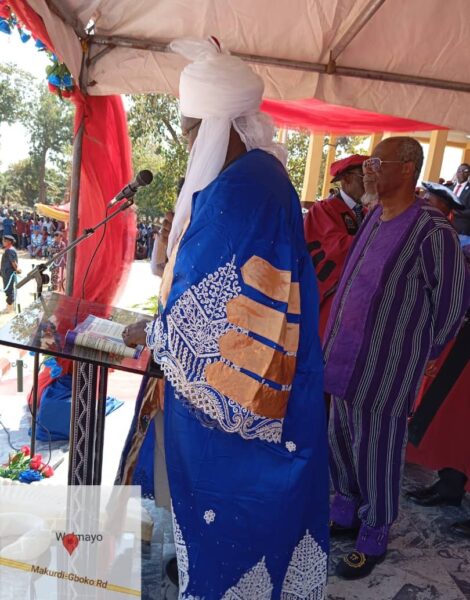
I am before you and the University Community to express my profound gratitude for the University’s conferment of this Honour. It is one of the greatest moments of the year. It confirms that some exemplary efforts are being made and that we are heading in the right direction in our efforts to expand the various epistemologies of understanding Africa.
As the university’s motto implies, for there to be an attainment of freedom, it is pertinent that the captives or the oppressed are conversant with the knowledge of their situations, as well as the possible approach to finding solutions. This has been the hallmark of my career path: teaching and building research endeavours around the epistemologies and cultures of Africa so as to let Africans see the limitations presumed on their behalf and realise the freedom that lies ahead.
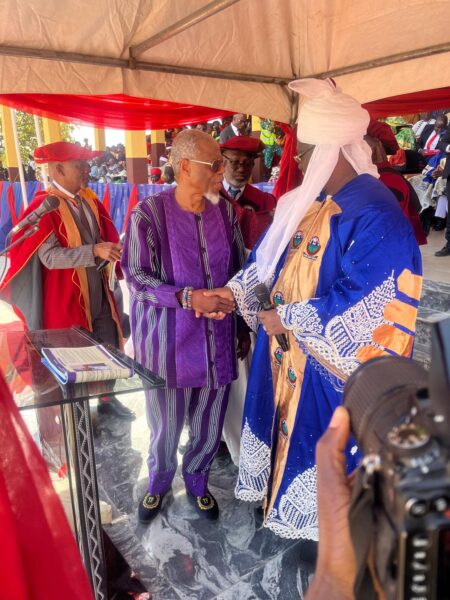
In my academic endeavours, my focus has been to spread the tenets and messages from the complexities of the African epistemologies, cultures, traditions, and dispositions to Africans and non-Africans to help them see the continent and citizens differently. This honour for my contributions to the development of African epistemology is a confirmation that the pursuit of knowledge is an unending voyage, with each discovery unveiling deeper truths that can set one free.
For centuries, the enlightenment ideals persuaded by the world have been dominated by Eurocentric perspectives adopted as the objective test of knowledge in universal conceptualisations. Hence, African epistemologies have been seen as subjective and informal. Sectors like medical practices, entertainment, and philosophical endeavours are at the receiving ends of these biases – putting the continent and those of its origin in constructive ideological bondage.
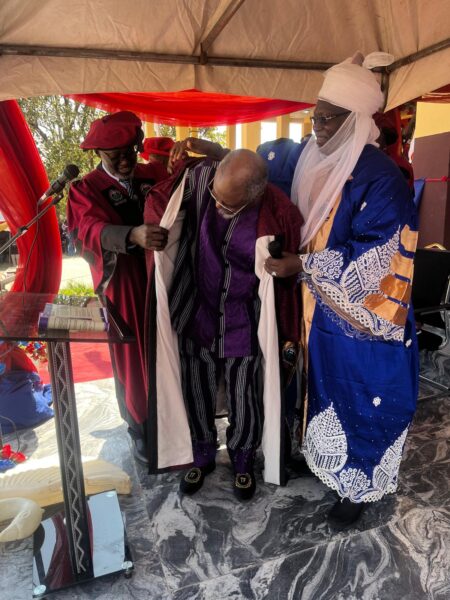
This was made worse by colonialism’s legacy, whose ghost still haunts the African knowledge system that the Western knowledge paradigm has replaced without regard for the pre-existing and self-developing class of knowledge. The colonialists built the foundation of the African contemporary knowledge system on what they thought to be ideal, therefore subjecting the continent to ideological bondage.
Those of us who have resided and lectured in the Western World have seen how the world builds knowledge hierarchies. Our preference has always been for European models of understanding, knowledge production, and knowledge dissemination. So, to gain any form of global recognition at all, African authors are made to conform to the Western frameworks of scholarship before any form of seriousness is accorded to African endeavours. So, the African knowledge system is stereotyped and misrepresented.
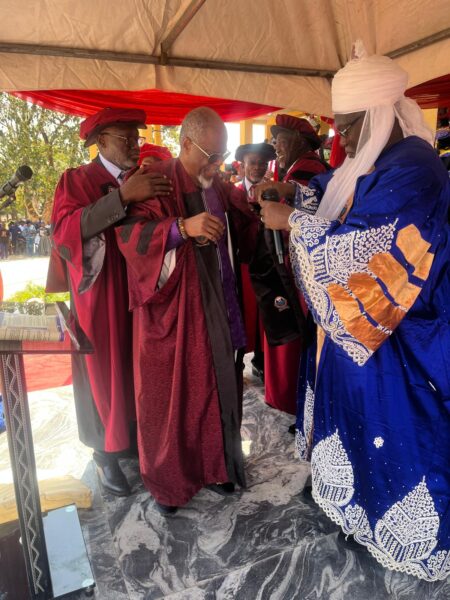
For centuries, African stakeholders, persons of influence, and scholars have been battling ideological captivity. The strides made have been commendable, especially after the post-colonial era, which saw great minds engage the very core of Eurocentric ideological values. The race for setting the records straight and putting the right perspectives on Africa has been ongoing for a while, and I took the baton at some point, too.
The long and short of this is that this honour by the University is not just a win for me but a contribution to the endeavour and an affirmation that a substantial win has been realised in the journey so far.
Aside from appreciating this honour for their broad contribution, I believe it is another encouragement for emerging African scholars who have met different levels of discouragement in their careers. Unfortunately, academics have gradually become an unattractive field and endeavour, especially in Africa and many parts of the world. Our universities are losing their most brilliant minds and facing a shortage of faculties to propel the African culture of excellence.
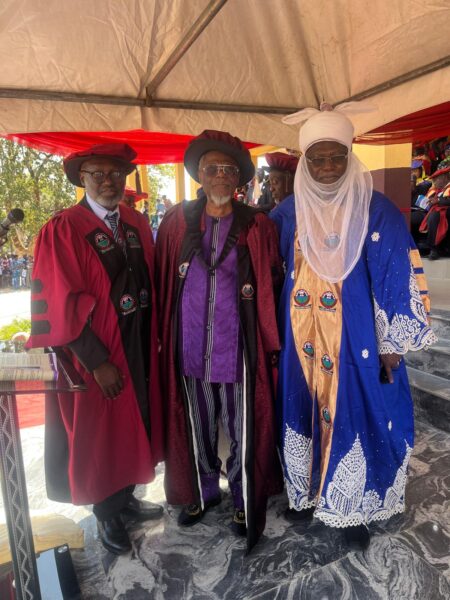
This development is understandable, considering the rewards and limitations in the field. This honour is a message to the upcoming scholars that what they face at the moment is not all there is about academics. It is a reminder that our efforts are recognised globally and that there are arrays of opportunities available to them.
This award becomes more important considering the university’s underlying values. The University is globally known for its strength in diversity and the rich cultural presence in its syllabus, engagements, and pedagogical approaches. Benue State University has distinguished itself as a beacon of intellectual growth, fostering critical thought and innovation in a region rich with cultural and historical significance. The University has been taking on the challenge of taking these attributes to the people of Benue State and accelerating the state’s effort to become an important intellectual backbone of the country and Africa.
Considering this, I see this award as an induction into a collaborative effort to achieve these ambitions. I am convinced that a partnership has been built to bring knowledge to the people of Benue and expand the University’s visibility in the global hierarchy of knowledge-distributing institutions. I am also convinced that this serves as an invitation to jointly invest efforts and advocate commitment towards further repositioning Africa and African knowledge both among Africans themselves and the universe in general.
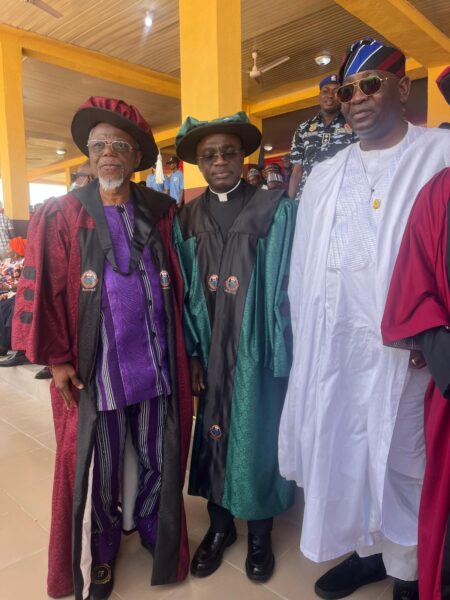
It is also important for me to use this opportunity to invite stakeholders, the government, and other institutions to appreciate Benue State University’s ambitions and ensure it is assisted in reaching them. Considering the general threat to education and educational institutions in Nigeria, the University needs as much sponsorship and financing as possible to keep it on the track of international competition.
In conclusion, I appreciate the leadership of the Benue State University, the community, members of staff, and the students for this honour. We urge the university to continue on its path of propelling African values and knowledge across borders. This award would be a reminder to me to recommit myself to the tenets upon which my career has been built and would be a boost for continuing contributions even at this age.
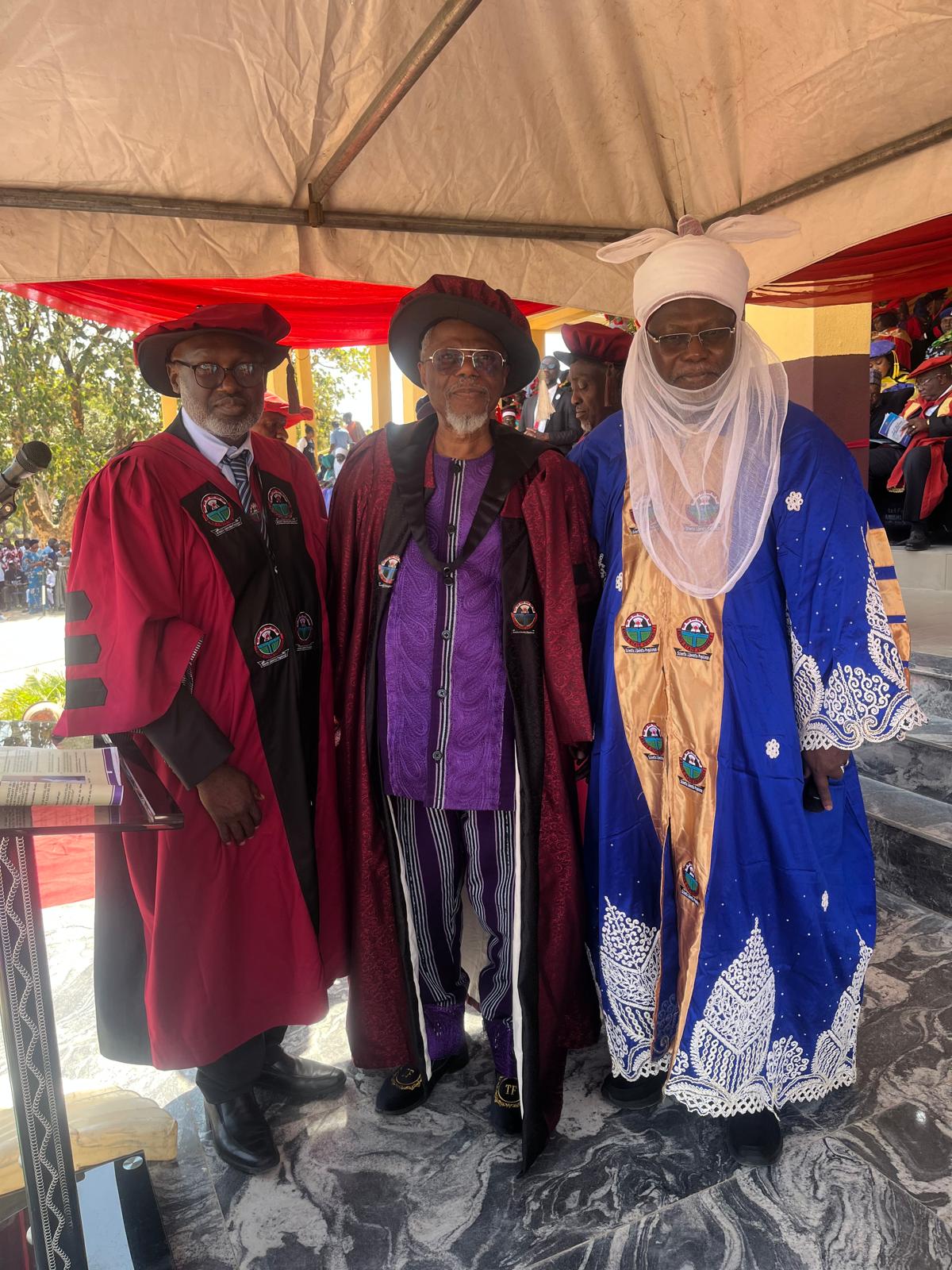
Most commendable